November 23, 2024 | 08:39 GMT +7
November 23, 2024 | 08:39 GMT +7
Hotline: 0913.378.918
November 23, 2024 | 08:39 GMT +7
Hotline: 0913.378.918
Located in the Southern Key Economic Region, Tay Ninh Province benefits from a strategic geographical position that connects with major economic hubs such as Ho Chi Minh City and Binh Duong, and shares a border with Cambodia. This advantageous location facilitates the transportation of livestock products to both domestic and international markets, thereby reducing logistics costs. Additionally, the province’s mild climate, with minimal impact from natural disasters, provides a favorable environment for large-scale and stable livestock development.
Furthermore, as one of the country’s leading agricultural regions, Tay Ninh boasts an abundant supply of animal feed originating from agricultural by-products such as sugarcane bagasse, cassava residue, natural grasses, and maize. This advantage helps reduce production costs and creates a favorable environment for large-scale livestock farming.
Recognizing livestock as a crucial factor in drawing agricultural investment, Tay Ninh has implemented various strategies to convert its potential into an investment magnet. Accordingly, the province has introduced multiple incentives for businesses investing in the livestock sector, with a focus on facilitating large-scale and high-tech livestock projects. These incentives include preferential policies on land, taxes, and administrative procedures, which enable businesses to implement their projects.
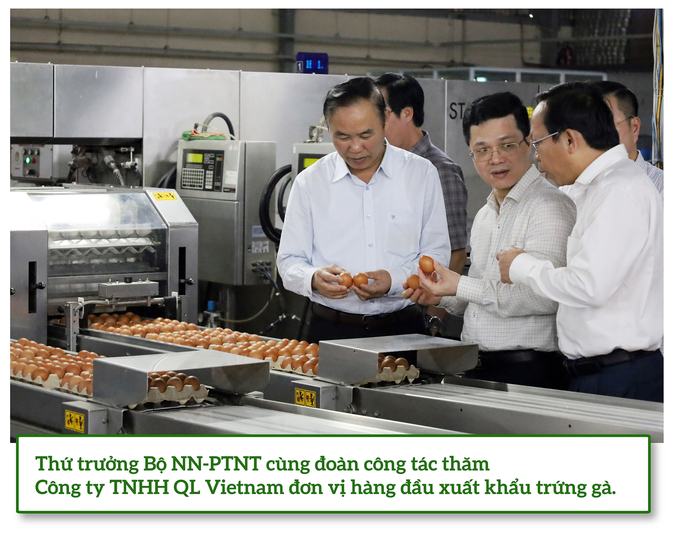
The Deputy Minister of Agriculture and Rural Development leading a delegation to visit QL Vietnam Co., Ltd., a pioneering company in egg export.
Furthermore, Tay Ninh is focusing heavily on establishing internationally certified disease-free zones to foster sustainable livestock development, enhance competitiveness, and facilitate the export of livestock products. In addition to protecting the local livestock population, certified disease-free zones help create products that meet the strict requirements of international markets.
On the other hand, Tay Ninh has implemented widespread vaccination programs to protect livestock from dangerous diseases. The local governments, in coordination with veterinary agencies, organize regular vaccination campaigns, conduct health inspections, and issue disease-free certification for qualified farms. This initiative ensures animal health and facilitates the entry of Tay Ninh’s livestock products into demanding markets around the world.
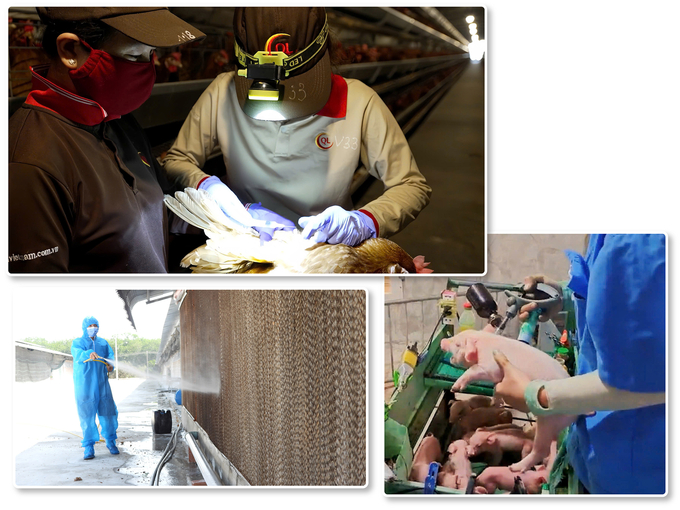
Tay Ninh Province’s Department of Agriculture and Rural Development reported that, by the end of August 2024, the province housed a total of 10 million poultry and nearly 400,000 pigs. The local livestock sector is encouraging its residents to transition from small-scale farming to concentrated farm-based operations, with an emphasis on biosecurity practices. The province currently features two districts, Duong Minh Chau and Tan Chau, that have received certifications for immunity against avian influenza and Newcastle disease in poultry. Additionally, 71 poultry, pig, and cattle farms have received disease-free certification.
“Disease-free zones allow animal product processing businesses to operate with confidence. By establishing these zones, Tay Ninh Province protects its livestock sector from disease risks, as well as takes a crucial step in attracting investment into the livestock sector,” emphasized Nguyen Dinh Xuan, General Director of Tay Ninh Province's Department of Agriculture and Rural Development.
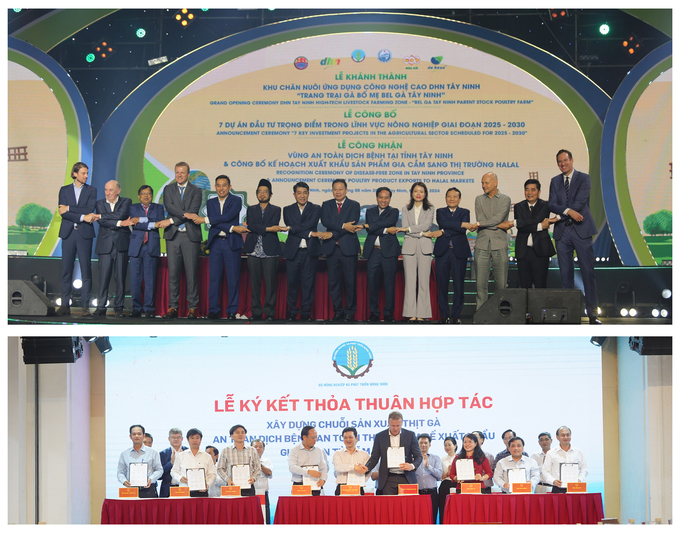
With suitable decision-making and development strategies, Tay Ninh Province is experiencing remarkable growth in the livestock sector. This progress not only positions Tay Ninh as a leading agricultural province in the Southeast region but also creates significant economic opportunities.
The province has experienced a strong wave of investment in the livestock sector within the last few years, supported by the implementation of numerous large-scale and high-value projects. As a result, various major corporations and businesses have chosen Tay Ninh as the ideal location to develop high-tech livestock projects.
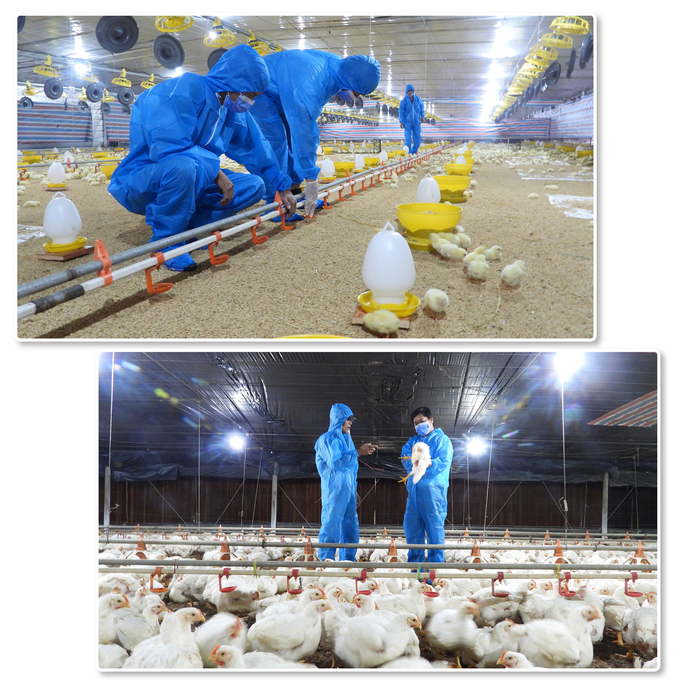
The adoption of high technology has enabled farms in Tay Ninh to establish a clean, high-quality, and safe food value chain for consumers. The project is projected to become one of the largest and most modern private farms in the entire Southeast region.
Pham Duc Ngu, the Deputy General Director of Vinafeed, noted that the community will receive clean and safe livestock products as a result of a comprehensive investment in the smallest phases.
Tay Ninh has witnessed a significant growth in both domestic and foreign investment, particularly in livestock projects. In 2021, as investment policies improved and the country increased its control over the pandemic, the province attracted approximately 1.5 billion USD in investment capital, encompassing numerous projects in the fields of renewable energy and high-tech agriculture.
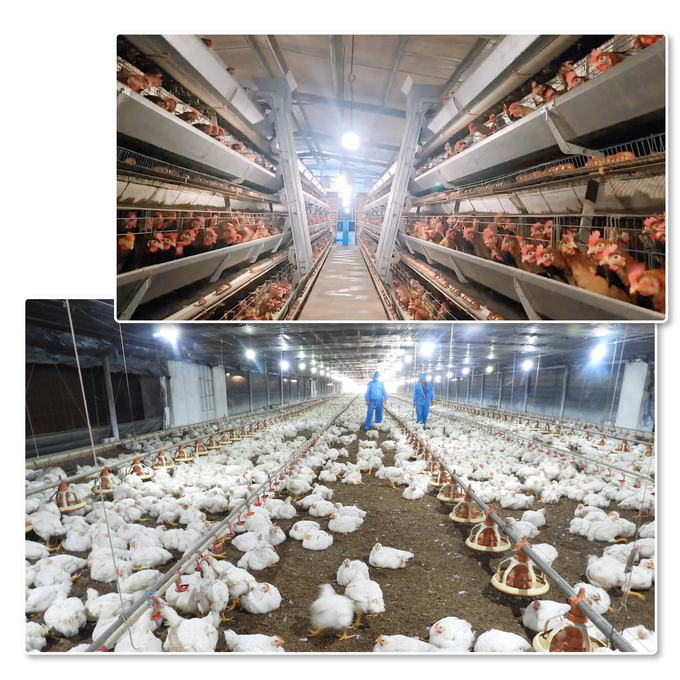
Major names such as De Heus Group, CP Group, Dabaco, Masan, and QL have established high-tech livestock farms in Tay Ninh Province, focusing on both livestock production and the construction of processing plants for livestock products. This movement creates an opportunity for Tay Ninh’s livestock products to meet export standards for demanding international markets such as Europe and the United States.
QL Vietnam Co., Ltd. is a pioneer in livestock production and export in Tay Ninh Province. The company is fully funded by QL Resources Group of Malaysia. At present, it operates two commercial egg-laying chicken farms, each with a capacity of 1 million chickens in Tan Bien District, featuring an annual yield of over 600 million eggs.
A representative from QL Company revealed plans to build a third egg-laying farm with a capacity of 1 million eggs per day. Notably, the company’s total egg production is projected to reach 750 to 900 million eggs per year between 2026 and 2030.
The company also aims to expand its reach to Halal countries and other markets such as Singapore, South Korea, and Japan. QL Company is requesting support from the Ministry of Agriculture and Rural Development (MARD) and the Department of Animal Health in negotiating with strict import markets, thereby enabling fresh egg imports from Vietnam.
De Heus Group is another major player collaborating with Tay Ninh Province to establish an internationally certified chicken meat production chain. De Heus is also coordinating with relevant local governments to develop standards and solutions for exporting chicken meat, processed poultry products, and eggs to Halal countries and other potential markets.
Gabor Fluit, CEO Asia at Royal De Heus, noted that several Halal countries have a demand for whole chicken imports, which presents a significant opportunity for Vietnamese chicken products to access these markets and gradually build a strong brand presence.
Nguyen Dinh Xuan, Director of Tay Ninh’s Department of Agriculture and Rural Development, added that under the regulations of the World Organisation for Animal Health (OIE), the export of animal-related products must comply with the requirements for disease-free zones.
Translated by Nguyen Hai Long
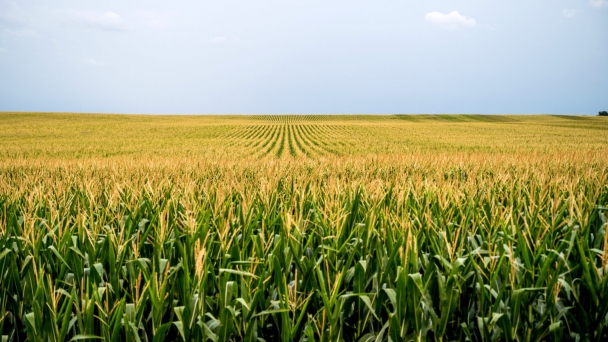
(VAN) Approach seeks voluntary reduction in fertilizer use, leading to cost savings and cleaner groundwater.
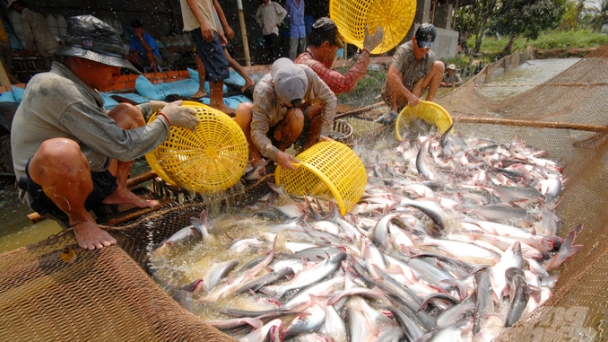
(VAN) Thanks to the pangasius farming link, cooperative members overcame the price crisis and reduced costs by VND 1,500-2,000/kg of fish over farmers.
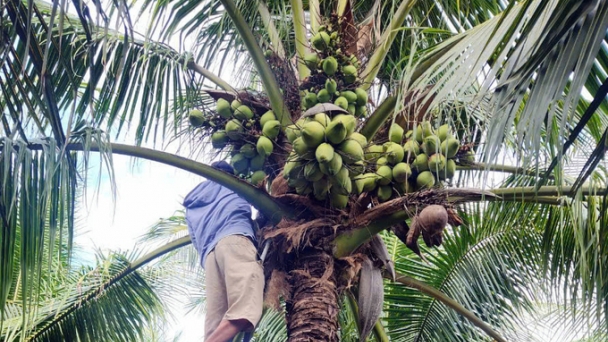
(VAN) Phu Yen Province will establish concentrated coconut production areas in Song Cau Town and Tuy An District, combining landscape development with community-based tourism.
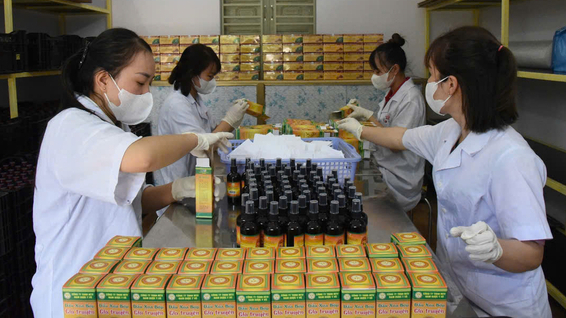
(VAN) With a modern technological production line, Nguyen Van Manh can efficiently extract medicinal herbs while preserving their valuable active compounds.
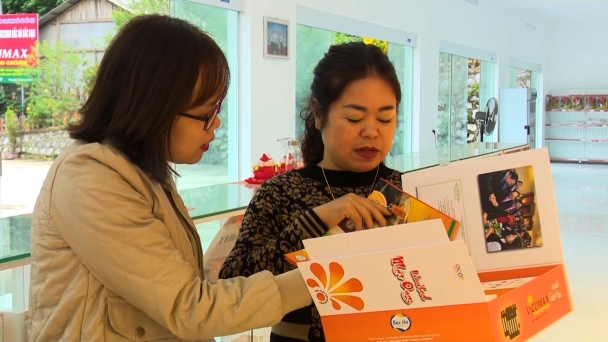
(VAN) Vicumax Limited Nano Curcumin, Vicumax Nano Curcumin, and Vicumax Honey Nano Curcumin are the three 5-star OCOP products from Bac Kan province in 2024.
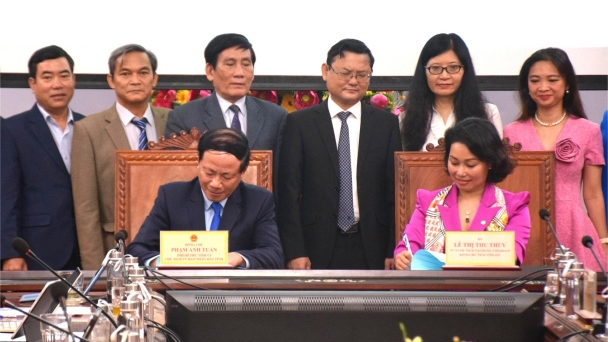
(VAN) Binh Dinh is actively implementing a comprehensive green transformation strategy to achieve net-zero emissions, in line with the Prime Minister’s directive.
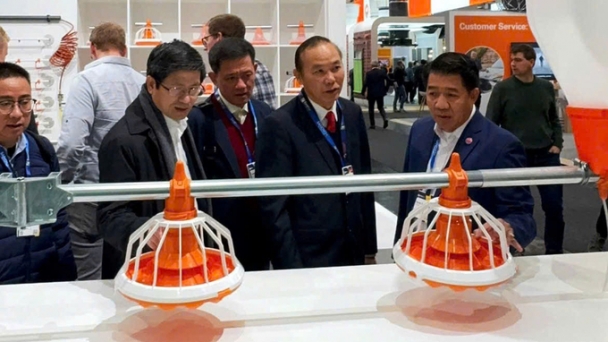
(VAN) In southern Vietnam, the Big Dutchman Group and the Hung Nhon Group will collaborate on 12 livestock farming projects, with a focus on poultry, laying chickens, and pigs.